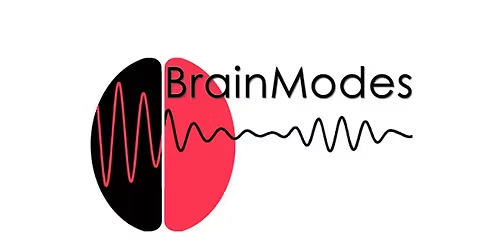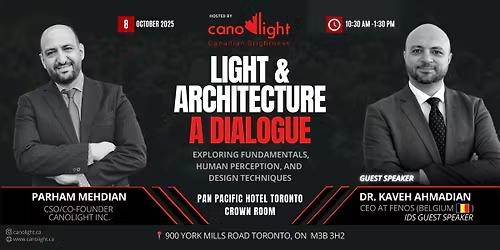
About this Event
The Promise of Music is a spectacular week of joy and inspiration that celebrates how music making transforms and saves lives across the world.
Orchestras, artists, dreamers, heroes and trailblazers from across the globe are gathering in Toronto to proclaim a simple truth: Music changes everything. With music education, children grow up to achieve significantly more academically, socially and interpersonally. They connect better with others, and create better careers for themselves.
Where is the Chrysalis?
Chrysalis (formerly known as Ryerson Theatre) is located at 43 Gerrard Street East in Toronto. The venue is located on the campus of Toronto Metropolitan University. The nearest major intersection is Yonge Street & Gerrard Street.
How do I get to Chrysalis?
Chrysalis is accessible by transit and by car. Chrysalis is conveniently located in between Dundas and College TTC stations. There are various parking garages nearby, as well as limited street parking.
Click here to get directions.
Is there accessible seating?
Yes, there is a designated accessibility seating section on the Orchestra level for those with mobility devices and/or accessibility accommodations.
Please note, unfortunately our Balcony level is not wheelchair accessible. There is no elevator and the balcony is only accessible by stairs.
If you have access needs or questions about accessibility, please contact [email protected].
Are there accessible restrooms?
There is a single-stall, all-gender restroom in the lobby. Please note, unfortunately this restroom does not have an ADA handicap button to automatically open the door. But the inside of the washroom is wheelchair accessible.
Agenda
🕑: 09:00 AM - 10:00 AM
Music, Trauma, and the Developing Brain
Info: Dubbed “the Landfill Harmonic,” the Recycled Orchestra of Cateura's instruments are amazing re-inventions, created using materials salvaged from their town’s one industry, an enormous landfill. Cellos are fashioned from oil drums, saxophones made from drainpipes, drumheads from old X-films. The Recycled Orchestra is transformation incarnate, both turning garbage into an orchestra and lives of hopelessness into ones of inspiration and purpose. The ensemble has toured the world, even performing with Metallica and Stevie Wonder, and the subject of a new musical debuting next year, Basura, by Gloria Estefan.
🕑: 09:00 AM - 10:30 AM
El Sistema at 50: The Movement that Started it All
Info: In 1975, Venezuelan economist and musician Dr. José Antonio Abreu set out to make music education accessible to all young people, starting with 11 students in an underground parking lot. His vision—music as social action to build better citizens—became “El Sistema,” growing to 400 teaching centres (“nucleos”) in underserved communities, correctional facilities, Indigenous programs, and initiatives for youth with special needs. Over 2 million Venezuelans have participated, creating 170+ orchestras, choirs, jazz groups, and a revival of folk music. Today, El Sistema-inspired programs exist in 60+ countries, including Canada, all dedicated to “Social Action Through Music.” Join Eric Booth, Tricia Tunstall, and global El Sistema leaders to explore this transformative movement.
🕑: 10:45 AM - 12:00 PM
Dr. Gabor Maté in Conversation: Trauma, Childhood, and Pathways to Healing
Info: A captivating, and deeply insightful conversation, recorded exclusively for The Promise of Music, exploring the profound connections between trauma, childhood development and emotional healing and music. Dr. Maté is joined in conversation by Brian Levine of The Glenn Gould Foundation.
🕑: 11:00 AM - 12:00 PM
Strategic Granting in Music Education: MusiCounts Insights and Process
Info: MusiCounts is Canada's music education charity, having directed over $18 million in instruments and resources to thousands of underserved schools and community music programs across Canada. Join MusiCounts as they offer a focused overview of their granting model as well as data-driven insights on the state of music education in Canada. These insights not only inform key trends in music education across the country, but also offer a foundation to inform broader educational and cultural policy conversations as they pertain to the state of music education.
🕑: 01:00 PM - 02:00 PM
Essential Skills for Musicians Facilitating Social and Community Projects
Info: This session focuses on the specific skills, training and personal qualities required of musicians who facilitate participatory music projects.
🕑: 01:00 PM - 02:00 PM
Rooted in Movement: Art, Equity, and Community
Info: In this powerful keynote, internationally acclaimed dancer, choreographer, and arts advocate Lil Buck shares how Memphis Jookin' - a street dance style born in the neighbourhoods of his home town - became both his personal path to possibility and a platform for youth empowerment. With its signature glide, bounce and elaborate footwork, Jookin’ launched Lil Buck from local streets to global stages. Reflecting on his own journey and the work of the Lil Buck Foundation, he explores how culturally rooted art forms can foster resilience, unlock talent, and expand opportunities for young people, especially in underserved communities. A Wall Street Journal Innovator of the Year and subject of Netflix’s MOVE and the documentary Lil Buck: Real Swan, he invites us to reimagine the role of community-based art in shaping brighter, bolder futures.
🕑: 02:15 PM - 03:30 PM
Roundtable: Building Bridges to a Better Future
Info: When young people grow up facing adversity, whether through economic deprivation, violence, displacement, or multigenerational trauma, feelings of hopelessness, disengagement, and hostility can become internalized responses to their outward circumstances. Through self-destructive or even criminal behaviour, too often, young lives can be wasted or tragically cut short. Against such overwhelming, soul-destroying odds, how can something as ephemeral as music make a difference? And yet, as our speakers have witnessed firsthand, music can inspire and catalyze an astonishing metamorphosis. It begins by showing young people that they are not alone. It affirms their potential to learn, to create and to achieve. The external realities of these young people may not immediately change, but through music, many develop inner strength, a sense of community, and spiritual and intellectual resources that help them rise above their circumstances and empower them to find a better way forward.
🕑: 02:30 PM - 03:30 PM
Rethinking School Music Programs to Meet Student Interests and Needs
Info: Across Canada, music educators are reshaping their music programs to better reflect the needs, interests, and identities of their students. This session brings together panelists who are moving beyond traditional models to build inclusive, culturally responsive programs that integrate Indigenous music, steel pan, hip hop, music technology, and more. Panelists will reflect on the process of challenging established norms; from assessing student needs and collaborating with community artists, to navigating risks, barriers, and curriculum alignment. This conversation aims to demystify the process of transforming music programs and to imagine what’s possible when we center students in the design and delivery of their music education.
🕑: 03:45 PM - 05:00 PM
The Value and Power of Music Therapy
Info: Music therapy harnesses the power of music in a therapeutic relationship guided by a trained professional to address a wide range of conditions in order to improve wellness and quality of life. When applied to children, music has been shown to support language acquisition and rehabilitation, motor skills development, emotional expression, social engagement, cognitive development and recovery from trauma. Music therapy is used extensively in paediatric, rehabilitation, mental health, medical and chronic care settings. Jennifer Buchanan is one of Canada’s most respected and successful music therapists. Based on her vast experience, and compassionate use of music as a healing tool, Jennifer will explain why, at this time of unprecedented increase in mental health challenges amongst children and youth, music is a powerful tool for promoting wellness.
🕑: 03:45 PM - 05:00 PM
New Advances in Applied Music Neuroscience - from Mechanisms to Interventions
Info: In recent decades, research into the effects of music on the brain, cognition, and neurological development has surged. The massive body of work has evolved alongside science’s growing understanding of neuroplasticity (the brain’s remarkable ability to continuously reorganize itself by forming new neural connections in response to stimuli, experience and activity). While huge gains in understanding have been made, vast frontiers remain unexplored in uncovering exactly how listening to, learning and making music change the brain. Already, we are gaining insights into the uses of sound, rhythm and musical structures for therapies to treat diverse conditions including stroke recovery, autism, Parkinson’s disease, epilepsy, traumatic brain injury, dementia, MS, and mood disorders. This expanding field raises compelling questions for parents, educators, and clinicians about the role of music in early development, and how it may build the neurological foundations for lifelong health.
Event Venue & Nearby Stays
The Creative School, Toronto Metropolitan University, The Creative School Chrysalis, Toronto, Canada
CAD 11.85












